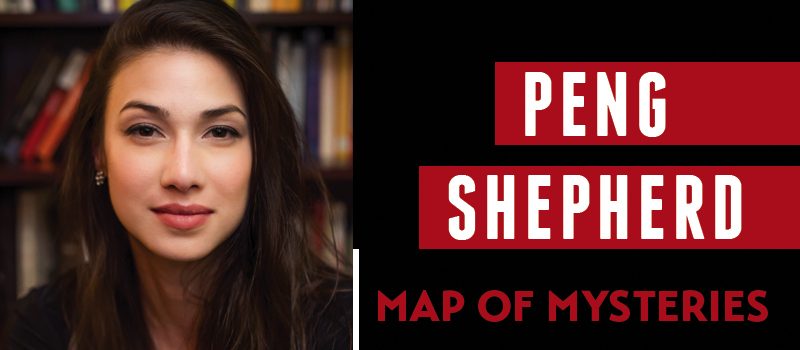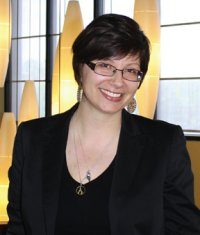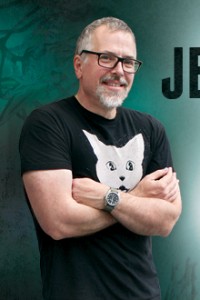Peng Shepherd: Map of Mysteries

PENG SHEPHERD was born April 12, 1986 and grew up in Phoenix AZ. She graduated college early and spent some time traveling, then earned her MFA at New York University. She has lived in Beijing, Kuala Lumpur, London, Los Angeles, Washington DC, and New York.
First novel The Book of M (2018) won the Neukom Institute Literary Arts Award for Speculative Fiction in the Debut category. Second novel The Cartographers appeared in 2022, and a third book is forthcoming. Her first story of genre interest, “Free Cake”, appeared in 2013, and novelette “The Future Library” (2021) won the Ignyte Award. She was the recipient of a 2020 fellowship from the National Endowment for the Arts.
Shepherd currently lives in Mexico City, but plans to return to New York soon.
Excerpt from the interview:
“The spark for the idea for ‘The Future Library’ came from the devastating wildfires that were ripping through California in 2019. The whole West Coast was on fire. I was living in Las Vegas at the time, and the smoke was so bad it reached us there. We had no sun, and the air was so hazardous that you couldn’t go outside for days, and I remember being inside my house with all the doors and the windows shut, everything sealed up as much as it could be, and still I felt sick – nauseated – because the air. I could still smell the smoke, it was so strong, and I thought, ‘If I feel sick here, I can’t imagine what it’s like over there. They really must be dying.’ The story came out of a combination of going through that and feeling so helpless because there was nothing I could do as just one person to stop these wildfires. But I also couldn’t stop thinking about them, and so I just started writing. It’s set in near-future Norway – I have travelled there a couple of times and I really love the country. It’s so beautiful. I don’t think I’ve ever seen landscape as beautiful as that.
“I do other kinds of writing only when forced to. Sometimes, when a book’s coming out, you get requests for little articles or essays, but I only do them when my publicist says, ‘You have to do this one.’ I really prefer to stay with fiction.
“It takes me forever to develop my ideas. I’m so jealous of all of my writer friends who are like, ‘Oh, the greatest tragedy is that I have notebooks full of ideas and I’ll never get to write them all!’ I’m the opposite: I have one book idea at a time, and when I’m nearing the end of the book, I have an existential crisis, because I know it’s the last thing I’m ever going to write. I’m never going to get an idea that’s good enough again, and that’s the end of my writing career. Then, inevitably, of course, I do get an idea, and I keep going.
“I often just sit down and start writing without a plan, and usually very quickly it kind of peters out – I’ll get 20 to 50 pages of something and then have no idea where it goes. It’s really squishy, and the characters aren’t really doing anything or saying anything. I don’t know who they are, and I’ll get frustrated and put it away. I’ll start working on something else and then, a year or two later, I realize what was missing and I’ll pull the piece back out and start again. In the beginning of my career, I thought that my projects either failed or succeeded based on that first attempt, but it’s actually more like: I start something, put it away, and then let it cook for a really long time while I’m working on something else. The Cartographers cooked for seven years. There were so many different versions of it. The way it started at one point, it was set inside a CIA-type government facility and everybody was a spy. At another point, it was set in China. There were all these different iterations I’d tried and then thought were failures and put away, but it was really just the percolation stage.
“These days, I keep little post-it notes with my percolating ideas. I put them around my desk where I sit during the day and write. I stare at them for months as I work, and just, slowly, they develop. Each one has a big document where I dump little thoughts that come to me, so sometimes I’ll get a snatch of an idea and I open that document and stick it in there and then give it another year.
“The Cartographers is set almost all in New York City, and mostly in New York state. I did live in NYC for almost seven years before I began writing the book. I started The Cartographers as soon as I moved away – which is silly – so I did a lot of research just by living there for a long time, and I’m actually moving back later this fall, which will be really fun.
“I ended up in Mexico City because I needed to move out of the place I was in earlier this year, and I knew I wasn’t going to be settled in New York City until later in the year, so I needed somewhere I could go for a short time that was really flexible. Mexico City was perfect. Cheap is always good for writers, and it’s pretty close to Phoenix, which is where my mom still lives, so I can go see her when I need to. It’s only five hours from New York City, so when I have book events I can fly there quickly, too. Also, it’s just amazing. The food, the architecture, the energy…. I love it. It’s so huge, and every neighborhood feels different. You can go to the quiet area, you can go to the artsy area, you can go to the restaurant area, you can go to the bars, you can go find music – whatever you want, you can find. But it’s also just so affordable, and the weather is amazing.
“People sometimes ask me if my next story is set in Mexico, and I have to say no, because I have no idea. So, currently, I have no plans to set something in Mexico City, but probably what’s going to happen is that two or three years from now, like with The Cartographers, I’ll start writing something and realize it’s set in Mexico City, after I’ve left. As soon as I leave or start the next thing, something comes into being.
“For me, and maybe other writers, it seems like you’re either in the camp where you want to make a statement, and that’s where the story is coming from, or you have a question, and the story is about exploring possible answers to that question. I’m in the question camp, so I’ll ask myself something like, ‘What is the relationship between love and memory, and can you have one without the other?’ The Book of M is an exploration of that. You can tell my feelings about the question through the book, but there definitely isn’t an objectively right answer, because some of the characters believe one thing, and others believe another. I would guess that Kim Stanley Robinson and Paolo Bacigalupi probably start with a statement, and that’s where they’re going – they try to prove the statement to you. I really admire that – that’s a really interesting way to write. I definitely can’t write like that, and I enjoy reading it because that’s not something I can do. I can only ask the question and explore it. I don’t like to state my answer too strongly, because if you’ve been with me through the whole book, you probably know what I think, but it’s just as important what you think. I want to leave room for the reader to have the answer, too.
“I read a lot of contemporary genre fiction. It’s always different after you become published than before, because before you’re published, you’re just grabbing what you like. After you get published, a lot of it is, ‘Oh, this book is similar to yours; would you read it and maybe blurb it?’
“David Pomerico is with HarperVoyager, but his office, for whatever reason, is right next to my editor’s, Emily Krump, even though she’s with a different imprint. I love a lot of David’s authors, so he constantly walks into her office with a bunch of books and says, ‘These are for Peng!’ It’s so wonderful, I just love it.
“But in general, the way that I find books now is a lot more social than it used to be, because before I was published, I didn’t go to cons, either, and I didn’t know any agents, and I didn’t know any editors or other authors. Now I’ve made a lot of writer friends, and it’s really fun to pick up a friend’s book. But it’s very important that none of us ever ask each other if we’ve read each other’s books – we’re very good about it, so that way nobody feels the pressure to lie to a friend, or to read a book they don’t want to.
“I have to finish the first draft of my third book seven days from now – that’s my deadline. I have just three chapters left, and they’ve got some raw material in them already. Chunks, I call them. These three are the last three chapters of the book, so I’m close. It’ll be very messy, obviously. My first drafts can be read from start to finish without any gaps, but it might not all make sense. And it still changes a lot in revision. So, I’ll be holding my breath the whole time Emily has it, waiting to hear what she thinks. I’m really excited.”
Interview art and design by Stephen H. Segal.
This report and more like it in the October 2022 issue of Locus.
 While you are here, please take a moment to support Locus with a one-time or recurring donation. We rely on reader donations to keep the magazine and site going, and would like to keep the site paywall free, but WE NEED YOUR FINANCIAL SUPPORT to continue quality coverage of the science fiction and fantasy field.
While you are here, please take a moment to support Locus with a one-time or recurring donation. We rely on reader donations to keep the magazine and site going, and would like to keep the site paywall free, but WE NEED YOUR FINANCIAL SUPPORT to continue quality coverage of the science fiction and fantasy field.
©Locus Magazine. Copyrighted material may not be republished without permission of LSFF.








